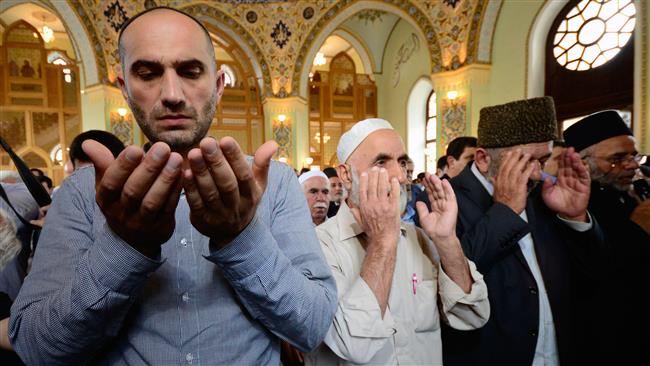Azerbaijani security forces carried out a raid involving hundreds of personnel on a Shia gathering mourning the martyrdom of Imam Hussein (PBUH), the third Shia Imam, in Nardaran, a municipality in the capital, Baku, on November 26, triggering clashes that killed five of the mourners and two policemen.
The petition said the police members had been killed by security forces to provide a pretext for suppressing the country’s Shia Muslims, who form the majority of its population.
On Friday, the country’s parliament passed a law banning the display on roads and streets of flags honoring the martyred Shia Imam and also prohibiting those Azerbaijanis who have received religious education abroad from staging and performing religious ceremonies.
The attack last month was followed by another raid on a Shia mosque in the town, which also led to fatalities.
The intellectuals also blasted Baku for accusing Shias of supporting the Takfiri Daesh terrorist group, which is mainly operating in Iraq and Syria.
They said it was clear that the Takfiri group was the creation of the United States, Israel, and Saudi Arabia, among others, to be used to dominate the resources of oil-rich countries.

A number of people with anti-Israeli and anti-Takfiri views have also been placed under arrest across Azerbaijan, including Tale’ Baqirzadeh aka Sheikh Bagirov, the head of the Muslim Union of Azerbaijani, who is known for his strong criticism of Wahhabis, Takfiris, and Zionists.
Wahhabism is the radical ideology dominating Saudi Arabia and freely preached by clerics in the Arab country. Takfirism, or the practice of accusing others of being “infidels,” is a characteristic of Wahhabism.
Azerbaijan also launched a suppression campaign against its Shia community back in 2010, when it also enforced a ban on the wearing of Islamic headscarves by girls at schools.
/149

